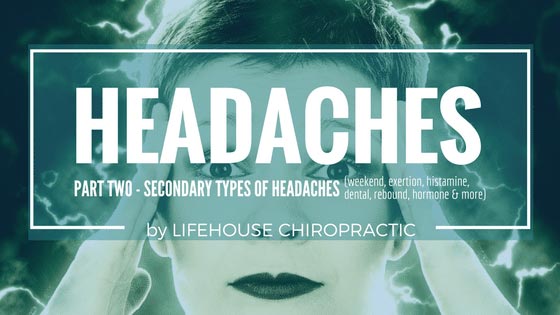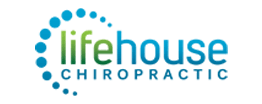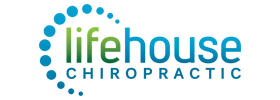Headaches in London ON - Part 2 - Secondary Types of Headaches

Headaches in London are usually classified according to the underlying cause. A primary headache is caused by overactivity of problems with pain-sensitive structures in your head; it isn’t a symptom of an underlying condition. Chemical activity in your brain, nerves, blood vessels or the muscles of your head and neck, or a combination of these factors contribute to primary headaches. As well, some people have genes that make them more likely to develop headaches.
A secondary headache is the term used to classify headaches that are caused by another condition and is different from the primary headaches, known as tension, migraine and cluster headaches. It is important to remember that severity of pain is not the distinguishing feature of whether a headache is classified as primary or secondary. It is the root or cause of the headache that classifies a headache.
A previous article, “Headaches – Part One – primary headaches – tension, migraine & cluster”, provides information about primary headaches. The focus of this article is to provide insight into secondary headaches.
Causes of Secondary Headaches
A secondary headache is a symptom of a condition that can trigger the pain-sensitive nerves of the head. The cause of secondary headaches may be life-threatening, and should be diagnosed and treated quickly. Possible causes [1] of secondary headaches can include such things as,
- Acute sinusitis
- Arterial tears (carotid or vertebral dissections)
- Blood clot (venous thrombosis) within the brain — separate from stroke
- Brain aneurysm (a bulge in an artery in your brain)
- Brain AVM (brain arteriovenous malformation) — an abnormal formation of brain blood vessels
- Brain tumor
- Carbon monoxide poisoning
- Chiari malformation (structural problem at the base of your skull)
- Concussion
- Dehydration
- Dental problems
- Ear infection (middle ear)
- Encephalitis (brain inflammation)
- Giant cell arteritis (inflammation of the lining of the arteries)
- Glaucoma (acute angle closure glaucoma)
- Hangovers
- High blood pressure (hypertension)
- Influenza (flu) and other febrile (fever) illnesses
- Intracranial hematoma (blood vessel ruptures with bleeding in or around the brain)
- Medications to treat other disorders
- Meningitis (inflammation of the membranes and fluid surrounding your brain and spinal cord)
- Monosodium glutamate (MSG)
- Overuse of pain medication
- Panic attacks and panic disorder
- Post-concussion syndrome
- Pressure from tight headgear, such as a helmet or goggles
- Pseudotumor cerebri (increased pressure inside the skull), also known as idiopathic intracranial hypertension
- Stroke
- Toxoplasmosis
- Trigeminal neuralgia (as well as other neuralgias, all involving irritation of certain nerves connecting the face and brain)
Types of Secondary Headaches
There are many causes of secondary headaches, and they are often classified into eight major groups [2].
- Trauma of head and neck
- Traumatic Head Injury headache is caused by an injury to the head. If you have had a head injury, especially accompanied by a headache, seek immediate medical attention.
- Whiplash
- Concussion
- Vascular issues of head and/or neck
- Stroke
- TIA (transient ischemic attack)
- Carotid artery disease
- Inflammation of arteries of the head and neck
- Non-vascular issues of head and/or neck
- The Brain Tumor headache is cause for alarm and medical attention. Fortunately, it is one of the most uncommon causes of a headache, and in only about 8% of cases is a headache the first and only symptom of a brain tumor. People with a brain tumor will often have neurological (motor or sensory) issues and personality changes before they get a headache [3].
- Seizures
- Excessive Cerebral Spinal fluid
- Medication problems
- Rebound headaches are often a result of taking any type of pain reliever, such as ibuprofen, aspirin, or even Tylenol more than twice a week, or if you take triptans (migraine drugs) more than 10 days each month [4]. Talk to your primary health practitioner to discuss the possibility of trying to live with the pain, without pain medication, for 30 days and look for a more natural approach to headache relief.
- Withdrawl headaches from medications
- Caffeine headache is brought on by lack of caffeine. Caffeine is mildly addictive, so if you don’t get your usual amount at your usual time, it could bring on a headache. You can either quit the addiction or feed it.
- Infection
- Infection and/or Sinus Headache is obviously caused by an infection or allergy and is resolved by treating the infection or allergy response. Opt for natural remedies, and remember, Dr. Janna is also able to help relieve sinus pressure with her sinus “adjustment.”
- Meningitis
- Encephalitis
- AIDS
- Pneumonia or other systemic infection
- Imbalance in body’s system
- Histamine headache is caused by an increase of circulating histamine that causes dilation the carotid artery. Can be brought on by exposure to allergens or ingestion of histamine, as found in wine, for example. Histamine headaches are described as attacks that are severe, sudden, recurrent, on one side, from neck to temple, often with runny nose and eyes, and sleepiness [5]. Best way to manage these headaches is through implementing (all natural) allergy relief, following an anti-histamine diet, or avoiding allergens, like wine.
- Hormone headaches occur about three days before and two days after your period starts. Try taking magnesium supplements about six to 10 days before your period is supposed to start [6]. Headaches during pregnancy may also occur as a result of changing hormones [7].
- High blood pressure
- Dehydration
- Renal failure
- Thyroid problems
- Allergy problems
- Sleep disorder or early morning headache could be your body calling for its usual coffee, or it could be a dental headache. If either of those are not the problem, discuss the possibility of sleep apnea with your health practitioner.
- Toxic/Metabolic headaches can be caused by things like a hangover, dehydration, low blood sugar or exposure to chemicals, like certain medications, fumes from household cleaning supplies or artificial fragrances. Stay hydrated, minimize exposure to chemicals and use all natural/organic products whenever possible [8].
- Issues with eyes, ears, nose and throat
- Dental headaches can be caused by temporomandibular joint problems, grinding the teeth at night or clenching the teeth [6]. People with TMJ problems have often found relief with chiropractic care.
- Psychiatric
- Psychosomatic – when the mind causes a headache when there is no physical explanation for the headache
- Somatopsychic – a person is in so much pain that they become depressed or experience some other form of psychiatric disorder
- Other
- Exertion headache is usually a throbbing or pulsating headache brought on by strenuous physical activity. This headache can occur during or after an activity and may last up to two days. It may come on suddenly. Exertion headaches are usually not serious, but they can be an indication of something serious, so best to get it checked out the first time you experience one. Exertion headaches may be helped by ensuring that your spine is properly aligned through regular chiropractic care before heavy lifting or jumping/running activities, and by ensuring good hydration [9].
- Weekend headache happens mainly on the week end. It’s not sure what causes this type of headache, but could be due to a change in routine, like going to bed later, sleeping in longer, withdrawl from your normal caffeine routine or a “release” from the stress of the previous week. To avoid these types of headaches, try to follow your wake, sleep, coffee routine on the week end that you follow during the week, and get some exercise or practise some yoga [6].
- Cough headaches can be triggered by coughs, or other activity that involves exertion, like blowing your nose, sneezing, bending over or laughing. Clinical research shows that about 40 percent of cough headaches indicate another disorder. See your doctor if you suffer from cough headaches so that all other possible conditions can be ruled out [10].
Help for Headaches…
Immediate attention by a health care provider is indicated when (1) a severe headache comes on suddenly without an apparent cause; (2) headache is accompanied by a neurological symptom like blurring of vision, mental confusion, loss of consciousness, motor incoordination or sensory loss; or (3) pain is highly localized; (4) is accompanied by a stiff neck and fever.
Many who suffer from headaches are turning to a natural, drugless approach to relief, since many headache medications do not actually get to the root of the problem and act as a temporary relief, and many pain relievers carry with them unwanted side effects.
Stay tuned for… “Headaches – Part Three – Natural Relief for Headaches!”
Sources:
- http://www.mayoclinic.org/symptoms/headache/basics/causes/sym-20050800
- http://www.ihateheadaches.org/what-diseases-cause-secondary-headaches.html
- http://www.migrainesurvival.com/what-do-brain-tumor-headaches-feel-like-find-reassurance?f=sb
- http://naturalon.com/14-types-of-headaches-and-how-to-make-them-go-away/view-all/#ixzz4hMfuWyMS
- http://medical-dictionary.thefreedictionary.com/histamine+headache
- http://naturalon.com/14-types-of-headaches-and-how-to-make-them-go-away/view-all/
- https://migraine.com/headache-types/pregnancy-headaches/
- http://www.migrainesurvival.com/toxicmetabolic-headaches?f=sb
- http://www.migrainesurvival.com/exertional-headache?f=sb
- https://migraine.com/headache-types/cough-headaches/
CONVENIENT
OFFICE HOURS
Give us a call and let's find out how we can make your time in our office as convenient for you as possible.
Monday
7:30am - 11:00am
3:00pm - 6:00pm
Tuesday
3:00pm - 6:00pm
Wednesday
7:30am - 11:00am
3:00pm - 6:00pm
Thursday
3:00pm - 6:00pm
Friday
7:30am - 11:00am
Saturday
Closed
LifeHouse Chiropractic
520 Springbank Drive #4
London, ON N6J 1G8
Phone (519) 204-9460
Fax (519) 601-9461




